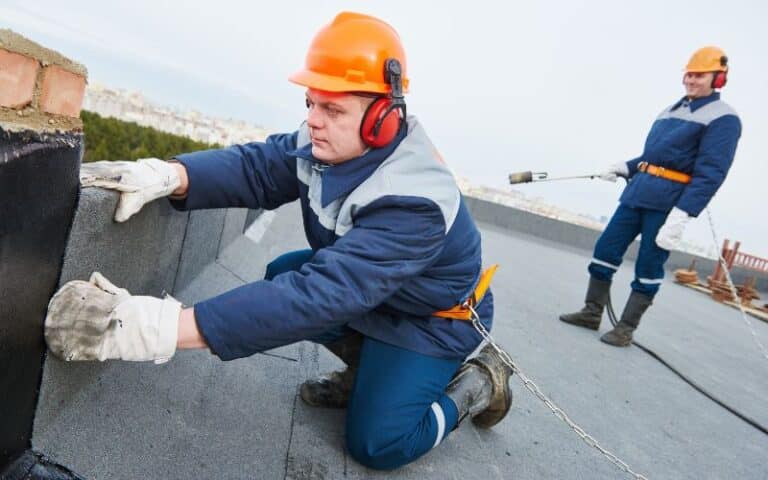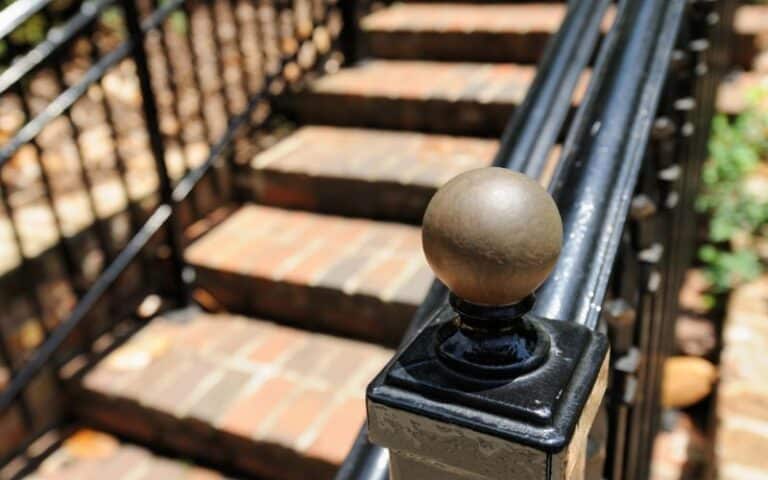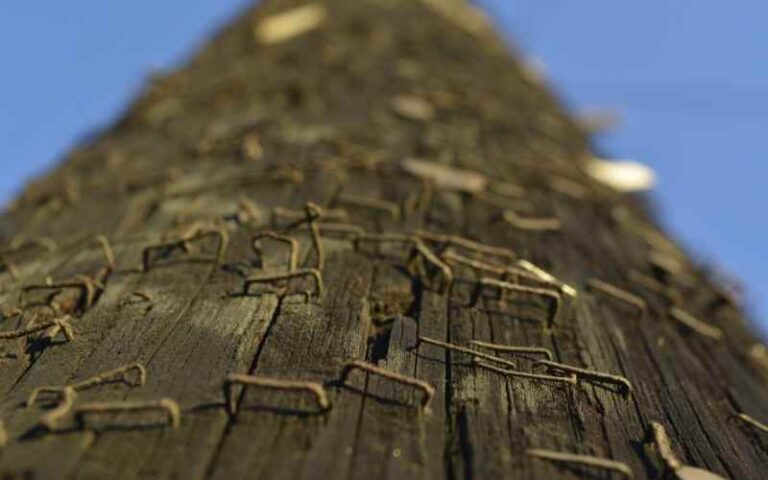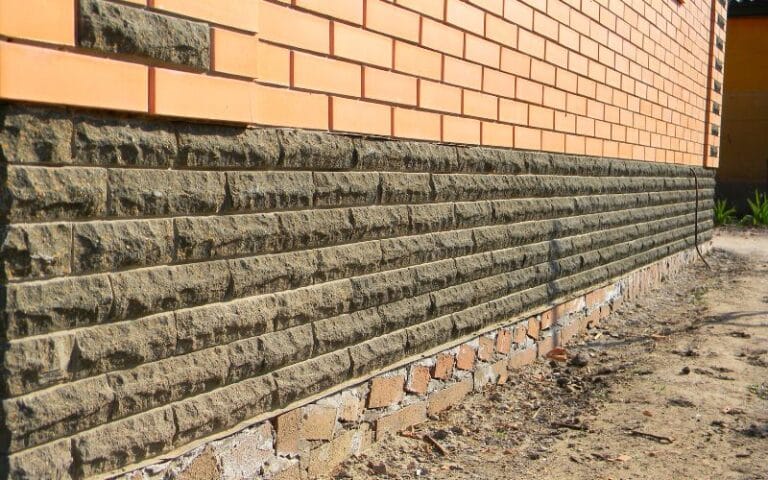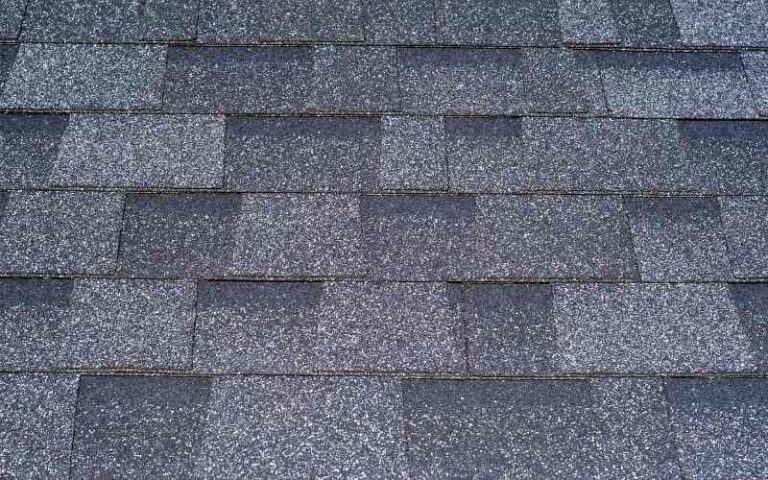The attic may be the most abandoned part of your home and, simultaneously, the most disturbing.
Often, it sounds like someone is walking in your attic, and other times, it’s a gnawing noise. Furthermore, these annoying events may even happen both day and night.
These sounds are caused mainly by raccoons and other home invaders like skunks, squirrels, and rodents. However, raccoons are larger and heavier than most animals that find their way into your attic. So, the movement of raccoons will sound more like heavy footsteps to you.
Ready for a Roofing Quiz?
Why Does It Sound Like Footsteps in My Attic?
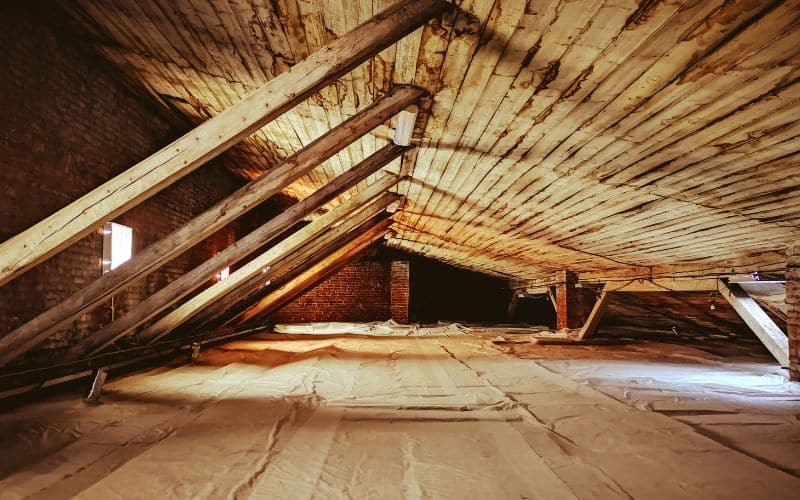
You hear those footsteps from home invaders chasing prey or running away from predators. But, exceptionally, the footsteps heard may likely be a raccoon moving around.
This critter walking sound is reasonably audible because of its size and weight.
Notwithstanding, your attic provides a warm and dry environment for them and also serves as their hideouts.
Therefore, most animals who find access into your home would hardly think of leaving. However, these critters can sometimes get violent and cause disturbing sounds in your attic.
Nonetheless, you can install an ultrasound animal repeller if you notice a raccoon around your home.
This device would transmit unpleasant sounds to the raccoon and drive it away. You can also call the wildlife removal service to eliminate any critters in your attic.
Furthermore, raccoons are nocturnal invaders, and you’d usually hear them at night. If you have raccoons in your attic, you will listen to slow walking, sliding, or shifting noises.
On the other hand, fast running or jumping actions are sporadic for a raccoon.
But during a territorial dispute or mating, they can exhibit disturbing behavior. There are several signs Raccoons leave when they are present in your attic.
Also, it’s still worth mentioning that raccoons are one of the largest animals that can ever infest homes.
With a good weight value, it amplifies the sound of their footsteps while moving across the attic.
In contrast, in the case of squirrels, they sound like light scurrying. In addition, the movement of a raccoon in the attic sounds like thumping.
Also, raccoons’ heavy steps can be the weight of a child’s steps. Away from that, the high-pitched chirping of babby raccoons can even wake you up at night.
Most times, the noises are often mistaken for birds in the attic.
Noises in Attic Early Morning
A Squirrel is more likely to make noises in the morning. The noise is because the critter’s movements sound fast, light, and hurrying, unlike ta raccoon’s heavy noises.
However, a raccoon can also disturb in the morning, but it’s a nocturnal animal.
Additionally, squirrels make scratching noises in the attic during the day and early hours of the morning.
Therefore, the sounds of rolling nuts across your attic floor often tell if a squirrel has gained access to your attic. Similarly, a snake can equally get into the attic and make specific sounds in the morning.
Meanwhile, noises in the attic during the early morning can also come from skunks and insects. But, then, sounds occurring at night are most likely produced by nocturnal critters.
For example, there’s a high tendency of squirrels in your attic if you hear sounds during the day.
Unlike raccoons, squirrels are active both in the morning and evening. Squirrels’ noises are more like light scampering because they are quick and fair.
Unfortunately, these home invaders also make annoying sounds in the attic walls or chimneys.
Like most animals, squirrels must depart in the morning to look for food. So you’ll hear them moving across the attic, and they will re-enter your home later in the day.
But, equally important, the noise becomes more noticeable between September and March.
During that period, young squirrels would become old enough to start making a lot of noise. No doubt, this may force you to try and resolve the issue yourself.
However, wildlife removal services should intervene when catching squirrels and other intelligent home invaders.
There’s no room for trial and error when protecting your home from critters.
Because most animals like squirrels and raccoons would look for a new hiding place in the attic, getting rid of a flying squirrel may not be possible if that’s what you’re dealing with.
Sounds Like Someone Is Walking On My Roof at Night
A raccoon or squirrel would sometimes go into the attic through your roof at night. However, most critters frequently go outside to feed and re-enter your home in the dark.
Also, a raccoon would want to enter your chimney without covering.
Your forgotten chimney is a perfect place for a mother raccoon to grow her kits. The chimney provides shelter and protection.
Alongside that, it’s easy for the adult raccoon to get up and down when she wants.
If you’ve seen an adult female raccoon in your vicinity lately, her babies may be near. Unfortunately, it may not only be the chimney, and you must inspect the attic.
If you hear a high-pitched chirping, that’s the sound of the kits calling for their mother.
Again, raccoons can get attracted to hot air escaping out of the vent on your roof. Since the vent brings out hot air from the attic, raccoons would want to get in there at all costs.
It includes destroying your roof vent cover, which turns out to be a simple task for most raccoons.
You may hear footsteps on the roof or scratching noises in the attic during this occasion. This scenario mostly happens at night, when you are likely to experience raccoon activity.
Further, they also build nests in your attic and get comfortable due to the warmness.
They may come through the roof or close branches when leaving the attic to search for food and water. Likewise, the Opossums that are skilled climbers.
They get access to your rooftop through overhanging tree branches or power lines.
From there, they look for ways to gain entry into your attics. Nevertheless, in a raccoon’s case, it can easily be scared by bright light. But, you need more than lights to keep other critters away.
What Do Animals in the Attic Sound Like?
Every home invader has its behavior and movement patterns. As a result, they make different sounds in the attic.
Let’s look at the distinctive noise made by some critters.
#1. Raccoons
Raccoons are nocturnal animals that make slow walking or sliding noises in the attic at night. Also, they create a tapping sound in the attic walls while digging into insulation and tearing ductwork.
Finally, they disturb your evenings with heavy thumping on the ceiling, generating scratching noises at night.
#2. Opossums
Opossums can awake residents with a wide range of vocalizations like hissing and shrieking.
Usually, mother opossum also produces clicking or lip-smacking sounds to call their babies. In addition, they make scratching sounds in the attic too.
#3. Rats and Mice
Rats and mice make scratching and gnawing noises as they crawl or chew on your walls. They also make scurrying sounds as they move quickly across your attic.
Furthermore, high-pitched Chirping and squeaks are caused by mice, while rats usually communicate at a pitch that humans cannot hear.
#4. Squirrels
Squirrels make light and scurrying noises when they run across your attic floor. You may hear scratching sounds, and they are also vocal animals.
Squirrels may collect nuts and acorns, which may cause noises while rolling them.
What Could Cause the Loud Thud in the Attic?
Animals like opossums and raccoons would be heavy enough to cause a loud thud in your attic. Squirrels don’t usually make loud noises in the attic.
But a raccoon and opossum could create a bumping sound while jumping across the floor or dragging something heavy.
Apart from the loud noises the size of the animals can cause, they can also destroy things very quickly. They possess sharp teeth and claws to chew and tear properties.
Nevertheless, getting them out is hardly a DIY job, and it would be great to invite the wildlife removal service.
Conclusion
Why Does It Sound Like Someone Is Walking In My Attic? Animals can get into your attic when attracted to the warmth inside and the shelter it could provide.
However, with its weight, while walking around, critters like the raccoon would sound like heavy footsteps.
Nonetheless, no home invader should be allowed to stay; they are nuisances and threaten human health.

